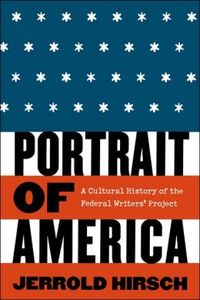

Purchase
A Cultural History of the Federal Writers' Project
University of North Carolina Press
October 2003
On Sale: September 26, 2003
293 pages
ISBN: 0807854891
EAN: 9780807854891
Kindle: B00AFENCAQ
Hardcover / e-Book
Add to Wish List
Non-Fiction
How well do we know our country? Whom do we include when we
use the word "American"? These are not just contemporary
issues but recurring and seemingly permanent questions
Americans have asked themselves throughout their history-and
questions that were addressed when, in 1935, the Roosevelt
administration created the Federal Writers' Project (FWP)
under the aegis of the Works Progress Administration.
Although the immediate context of the FWP was work relief,
national FWP officials developed programs that spoke to much
larger and longer-standing debates over the nature of
American identity and culture and the very definition of who
was an American. Hirsch reviews the founding of the FWP
and the significance of its American Guide series,
considering the choices made by administrators who wanted to
celebrate diversity as a positive aspect of American
cultural identity. In his exploration of the FWP's other
writings, Hirsch discusses the project's pioneering use of
oral history in interviews with ordinary southerners,
ex-slaves, ethnic minorities, and industrial workers. He
also examines congressional critics of the FWP vision; the
occasional opposition of local Federal Writers, especially
in the South; and how the FWP's vision changed in response
to the challenge of World War II. In the course of this
study, Hirsch raises thought-provoking questions about the
relationship between diversity and unity, government and
culture, and, ultimately, culture and democracy.
Comments
No comments posted.
Registered users may leave comments.
Log in or register now!
| 


 © 2003-2024 off-the-edge.net
all rights reserved Privacy Policy
© 2003-2024 off-the-edge.net
all rights reserved Privacy Policy